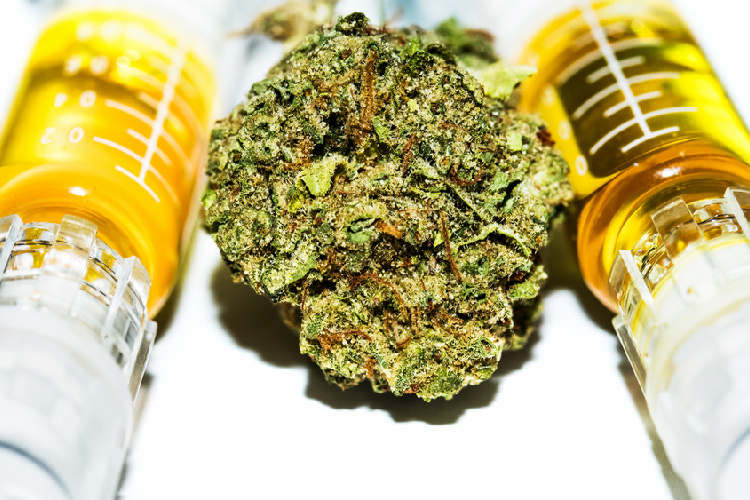The role that cannabis can play in managing or treating a variety of conditions or symptoms is becoming clearer every day. With the rapid progress of legalization in the country, new and more effective products are being developed to alleviate pain and suffering. While more research must be done before cannabis can be definitively linked to curing certain illnesses, many patients who require comfort in the later stages of a terminal condition turn to cannabis for palliative care.

The Pain-Relieving Properties of Cannabis
Cannabis is increasingly recognized by doctors and scientists alike for its potent analgesic properties. Within cannabis lies several chemical components that contribute to its ability to relieve pain, namely tetrahydrocannabinol (commonly called THC) and cannabidiol (referred to as CBD). Each plays a particular role in cannabis’s effectiveness in reducing pain and other distressing symptoms, such as vomiting and nausea.
THC is famous for its psychoactive properties, but the chemical has proven to be an ideal panacea for pain as well. As THC is responsible for the powerful high that often accompanies cannabis, high THC strains can be especially useful for patients in palliative care. For certain conditions that require extreme potency, large quantities of THC can be an effective tool for providing comfort and relief.
CBD, in comparison, does not instigate a recognizable cannabis high when applied in concentrated forms. Rather, CBD offers patients the anodyne qualities of cannabis without the associated high. For patients who desire the painkilling effects of cannabis without a psychoactive experience, CBD has become a popular option when available.
The Effectiveness of Cannabis for Palliative Care
While every patient will require a treatment suited specifically for them, cannabis can be the right option to alleviate suffering for those afflicted by a debilitating illness. In particular, the powerful properties of THC and CBD in combination with each other have been shown to assuage severe pain and anguish.

As opposed to traditional painkillers, patients seeking out cannabis for palliative care prefer a natural medicine without the negative side-effects that can accompany prescription drugs. Indeed, many patients choose cannabis as an alternative to potentially problematic medications like opioids.
Patients often find that cannabis offers the same or greater efficacy in pain management compared to pharmaceuticals. As more research is done into cannabis as medicine, the potential is clear for strides to be made in unlocking the healing power of its constituent chemicals.
Ideal Cannabis for Palliative Care
When considering the use of marijuana for serious or terminal conditions, patients must always consult a doctor to determine the course of treatment that is appropriate for them. Furthermore, employees at cannabis care providers will often be equipped with the necessary knowledge to connect patients with the products best suited for their individual ailment.

In general, indica strains are known to be more potent than sativas and possess sleep-inducing effects can be ideal for patients suffering from chronic and debilitating pain. While strains vary drastically in both quality and effects, indicas typically provide an embracing body high capable of melting away physical distress.
Edibles (or “medibles”) are also a potential avenue of exploration for patients seeking cannabis for palliative care. As edibles are usually much stronger than other forms of cannabis, they can act as long-lasting pain relievers. In addition, many patients may have conditions that prevent them from inhaling cannabis smoke, thus making edibles a safer and preferable option.
Want to learn more? Stop by our Columbia, Maryland, Dispensary—our staff is happy to help!